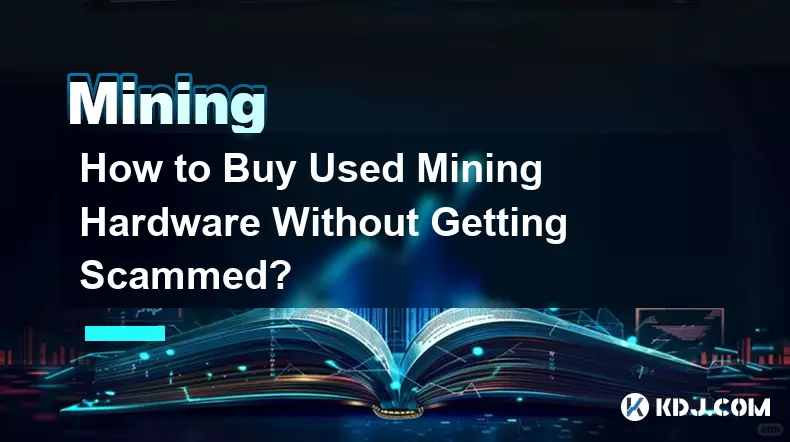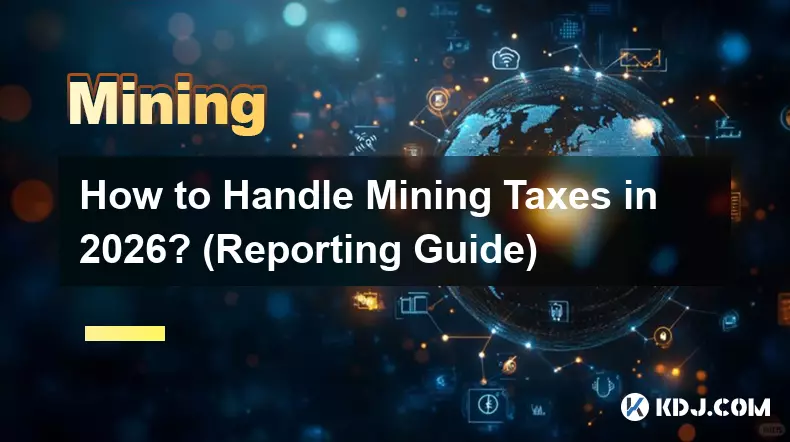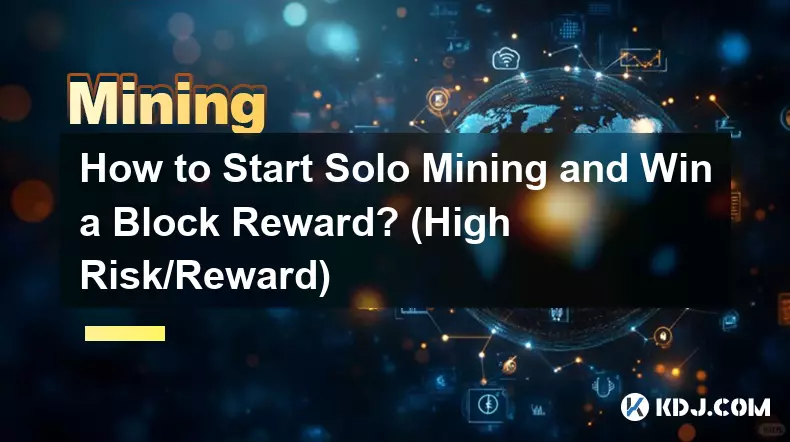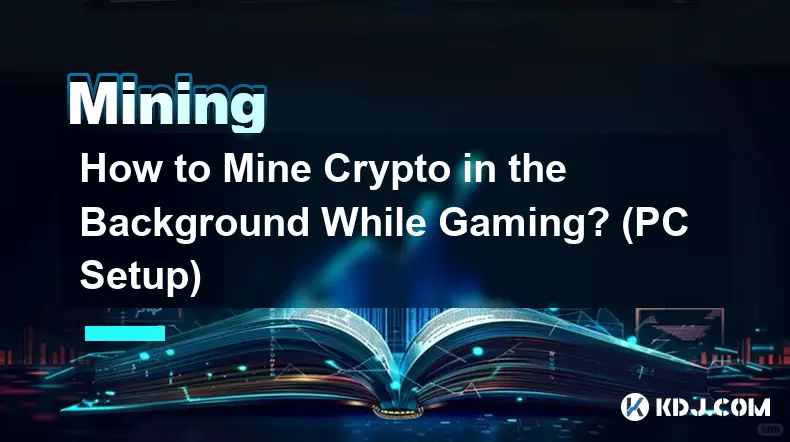-
 bitcoin
bitcoin $87959.907984 USD
1.34% -
 ethereum
ethereum $2920.497338 USD
3.04% -
 tether
tether $0.999775 USD
0.00% -
 xrp
xrp $2.237324 USD
8.12% -
 bnb
bnb $860.243768 USD
0.90% -
 solana
solana $138.089498 USD
5.43% -
 usd-coin
usd-coin $0.999807 USD
0.01% -
 tron
tron $0.272801 USD
-1.53% -
 dogecoin
dogecoin $0.150904 USD
2.96% -
 cardano
cardano $0.421635 USD
1.97% -
 hyperliquid
hyperliquid $32.152445 USD
2.23% -
 bitcoin-cash
bitcoin-cash $533.301069 USD
-1.94% -
 chainlink
chainlink $12.953417 USD
2.68% -
 unus-sed-leo
unus-sed-leo $9.535951 USD
0.73% -
 zcash
zcash $521.483386 USD
-2.87%
How to mine bcc currency
Joining a mining pool for BCC increases the likelihood of earning rewards by pooling resources with other miners, though it may result in a lower share of the rewards compared to solo mining.
Jan 11, 2025 at 08:32 pm

- Understanding BCC Mining
- Software and Hardware Requirements
- Joining a Mining Pool
- Solo Mining vs. Pool Mining
- Setting Up Your Mining Rig
- Managing the Mining Process
- Monitoring Profits
Bitcoin Cash (BCC) is a cryptocurrency that forked from Bitcoin in August 2017. BCC mining involves using specialized computer hardware to solve complex mathematical equations and verify transactions on the BCC blockchain. In return for their contributions, miners are rewarded with BCC.
Step 2: Software and Hardware Requirements- Mining Software: CGMiner, Awesome Miner, or EasyMiner
- Mining Hardware: ASIC miners or GPUs (Graphics Processing Units)
ASIC miners are specifically designed for cryptocurrency mining and offer higher hash rates than GPUs. However, they are also more expensive. GPUs are more versatile and can be used for other applications when not mining.
Step 3: Joining a Mining PoolMining pools combine the resources of multiple miners to increase their chances of finding blocks and earning rewards. When a block is found, it is distributed among all pool members based on their contributed hash rate.
Advantages of Mining Pools:- Increased chances of block rewards
- More stable income
- Lower revenue share compared to solo mining
- Pool fees
- Mined blocks yield higher rewards but are rare.
- Requires significant hardware and electricity consumption.
- Suitable for miners with large hashrates.
- More frequent but lower rewards.
- Lower hardware and electricity costs.
- Suitable for miners with smaller hashrates.
- Connect your hardware: Install ASIC miners or GPUs and connect them to the motherboard.
- Configure mining software: Set up mining software and configure it to connect to the desired mining pool.
- Optimize settings: Adjust settings such as clock speed, fan speed, and overclocking to maximize hash rate.
- Monitor performance: Use software to track hash rates, temperature, and power consumption.
- Adjust settings: If hash rates or temperature become too high, adjust settings accordingly.
- Maintain hardware: Regularly clean and service mining hardware to prevent overheating and damage.
- Calculate profitability: Use profitability calculators to estimate earning potential based on hash rate, electricity cost, and BCC price.
- Receive rewards: When a block is found, rewards will be automatically deposited into your BCC wallet.
- Adjust strategy: If profitability becomes low, consider switching pools or negotiating fees.
A: CGMiner, Awesome Miner, and EasyMiner are popular choices.
Q: What is the best mining hardware for BCC?A: ASIC miners specifically designed for BCC are the most efficient. However, they are expensive.
Q: Is solo mining profitable for BCC?A: Solo mining requires significant hardware and electricity consumption and is only profitable for miners with large hashrates.
Q: How do I join a mining pool?A: Choose a pool, create an account, and configure your mining software to connect to the pool.
Q: How often do mining pools pay out?A: Payout frequency varies depending on the pool's policies, typically ranging from daily to monthly.
Disclaimer:info@kdj.com
The information provided is not trading advice. kdj.com does not assume any responsibility for any investments made based on the information provided in this article. Cryptocurrencies are highly volatile and it is highly recommended that you invest with caution after thorough research!
If you believe that the content used on this website infringes your copyright, please contact us immediately (info@kdj.com) and we will delete it promptly.
- Tokenization, Stablecoins, Remittances: The New York Minute for Global Finance
- 2026-02-01 19:20:01
- BlockDAG Poised for 100x Crypto Opportunity as Presale Enters Final Hours, Promising Massive Gains
- 2026-02-01 19:20:01
- Circle Charts Bold Course: Stablecoins to Reshape Global Finance by 2026
- 2026-02-01 19:25:01
- Big Apple Bites into Blockchain: Ethereum DApps, Exchanges, and Games Navigate a Shifting Crypto Tide
- 2026-02-01 19:15:01
- Cryptocurrency Presales and Pumpfun: The Big Apple's Bold Bet on Digital Gold Rush
- 2026-02-01 19:15:01
- Pi Network Bolsters Mainnet Migration and KYC Enhancements Amidst Ecosystem Growth
- 2026-02-01 19:10:02
Related knowledge

How to Earn Passive Income with DePIN Mining? (New Trend 2026)
Feb 01,2026 at 12:40pm
Understanding DePIN Mining Mechanics1. DePIN mining relies on real-world infrastructure participation rather than computational hashing. Users deploy ...

How to Mine Bitcoin on Mac (M1/M2/M3)? (Software Tutorial)
Feb 01,2026 at 07:19pm
Understanding Bitcoin Mining on Apple Silicon1. Bitcoin mining relies on solving cryptographic puzzles using computational power, and Apple’s M1, M2, ...

How to Buy Used Mining Hardware Without Getting Scammed?
Feb 01,2026 at 08:00pm
Research the Seller's Reputation Thoroughly1. Check archived listings and feedback on platforms like Bitcointalk forums, Mining Hardware subreddits, a...

How to Handle Mining Taxes in 2026? (Reporting Guide)
Feb 01,2026 at 01:39am
Tax Classification of Mining Rewards1. Cryptocurrency mining rewards are treated as ordinary income at the fair market value on the date of receipt. 2...

How to Start Solo Mining and Win a Block Reward? (High Risk/Reward)
Feb 01,2026 at 06:40am
Understanding Solo Mining Mechanics1. Solo mining means operating a full node and attempting to solve cryptographic puzzles independently without join...

How to Mine Crypto in the Background While Gaming? (PC Setup)
Feb 01,2026 at 01:20pm
Optimizing GPU Utilization During Gaming Sessions1. Modern gaming GPUs often idle certain shader units or memory bandwidth during less demanding scene...

How to Earn Passive Income with DePIN Mining? (New Trend 2026)
Feb 01,2026 at 12:40pm
Understanding DePIN Mining Mechanics1. DePIN mining relies on real-world infrastructure participation rather than computational hashing. Users deploy ...

How to Mine Bitcoin on Mac (M1/M2/M3)? (Software Tutorial)
Feb 01,2026 at 07:19pm
Understanding Bitcoin Mining on Apple Silicon1. Bitcoin mining relies on solving cryptographic puzzles using computational power, and Apple’s M1, M2, ...

How to Buy Used Mining Hardware Without Getting Scammed?
Feb 01,2026 at 08:00pm
Research the Seller's Reputation Thoroughly1. Check archived listings and feedback on platforms like Bitcointalk forums, Mining Hardware subreddits, a...

How to Handle Mining Taxes in 2026? (Reporting Guide)
Feb 01,2026 at 01:39am
Tax Classification of Mining Rewards1. Cryptocurrency mining rewards are treated as ordinary income at the fair market value on the date of receipt. 2...

How to Start Solo Mining and Win a Block Reward? (High Risk/Reward)
Feb 01,2026 at 06:40am
Understanding Solo Mining Mechanics1. Solo mining means operating a full node and attempting to solve cryptographic puzzles independently without join...

How to Mine Crypto in the Background While Gaming? (PC Setup)
Feb 01,2026 at 01:20pm
Optimizing GPU Utilization During Gaming Sessions1. Modern gaming GPUs often idle certain shader units or memory bandwidth during less demanding scene...
See all articles
























![[Audio stories] Streamer Became a Billionaire Overnight After Buying One Junk Coin [Audio stories] Streamer Became a Billionaire Overnight After Buying One Junk Coin](/uploads/2026/02/01/cryptocurrencies-news/videos/origin_697eaa9a495ed_image_500_375.webp)

















































